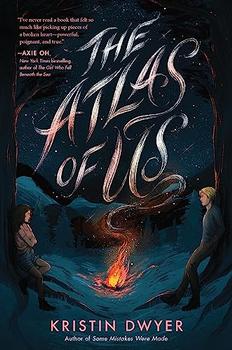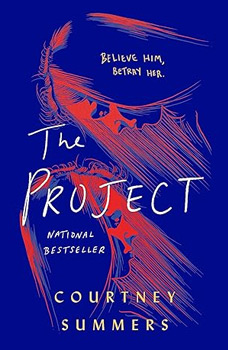Summary | Excerpt | Reviews | Beyond the book | Read-Alikes | Genres & Themes | Author Bio

Don't go to bed angry; make up after fights; always say I love you – you don't know when what you say to someone might be the last thing you ever say to that person. We all grow up hearing some version of these pieces of wisdom, but what happens when it is wisdom left unfollowed? 16-year-old Tiger has a unique relationship with her mother – they might not have much and things might not be perfect, but they are a "well-oiled, good-looking, and good-smelling machine." But sometimes, Tiger just wants a little space to be a normal teenager, and not have her mother checking in on her all the time. She wants to go to a dance, pick out her own clothes and spend time with the boy she likes. But Tiger's world is shattered when her mom dies suddenly, and she is thrust into the unknown. With no one else to legally take her in, she enters the foster system, bouncing around between strangers while trying to cope with her suffocating grief and figure out what she is meant to do next.
It is not enough to simply say that grief is the overwhelming emotion driving this narrative. Told from Tiger's first-person limited perspective, we are enmeshed in her consciousness as she counts the minutes from the moment she's told her mother has died. We are in her mind as she moves through anger, hopelessness, regret, loss and always, back to an unfathomable grief. We cry with her; we share every unbearable moment of both numbness and the bereavement that becomes physically painful. No loss is easy, but Kathleen Glasgow depicts vividly how traumatizing the loss of a parent can be, and how destabilizing it is when you have no one else to turn to.
The author also opens a doorway into something that most people might rather not consider - who takes the children who have no one else? What is life like when you become the responsibility of the state? Grief becomes multi-fold in How to Make Friends with the Dark; it is not only her mother Tiger loses – it is her sense of security and comfort, her sense of how the world works. Furthermore, she discovers that in the foster care system, many people do not care about children or teenagers, and often times hurt them while claiming to help. In some ways, this experience shatters her reality as much as the loss of her mother, and as her eyes become open to a much crueler world, so to do those of the reader.
There are many books on the market for young adult and teen audiences that deal with gut-punchingly real issues, that expose the darkness in life that, unfortunately, most of us will reckon with eventually. But Glasgow uses Tiger's gaze to look not only inward at her own grief, but through a wider lens to account for other kinds of grief, loss and pain too. The result is powerful, and a must-read for anyone who needs language with which to discuss loss, and in particular anyone who works with children or teenagers. Through Tiger we feel deeply, we learn to change and adapt, to approach grief without diminishing what is happening to the person experiencing it. We learn to accept the "Big Suck" of loss, and gain language for how to embrace that darkness and move forward.
![]() This review was originally published in The BookBrowse Review in June 2019, and has been updated for the
May 2020 edition.
Click here to go to this issue.
This review was originally published in The BookBrowse Review in June 2019, and has been updated for the
May 2020 edition.
Click here to go to this issue.

If you liked How to Make Friends with the Dark, try these:

by Kristin Dwyer
Published 2024
"A complete knockout. Readers will be thinking of this story long after they finish the final page." —Adalyn Grace, New York Times bestselling author of Belladonna

by Courtney Summers
Published 2023
From Courtney Summers, the New York Times bestselling author of the 2019 Edgar Award Winner and breakout hit, Sadie, comes a sensational follow-up -- another pulls-no-punches thriller about an aspiring young journalist determined to save her sister from a cult.
A library is thought in cold storage
Click Here to find out who said this, as well as discovering other famous literary quotes!
Your guide toexceptional books
BookBrowse seeks out and recommends the best in contemporary fiction and nonfiction—books that not only engage and entertain but also deepen our understanding of ourselves and the world around us.